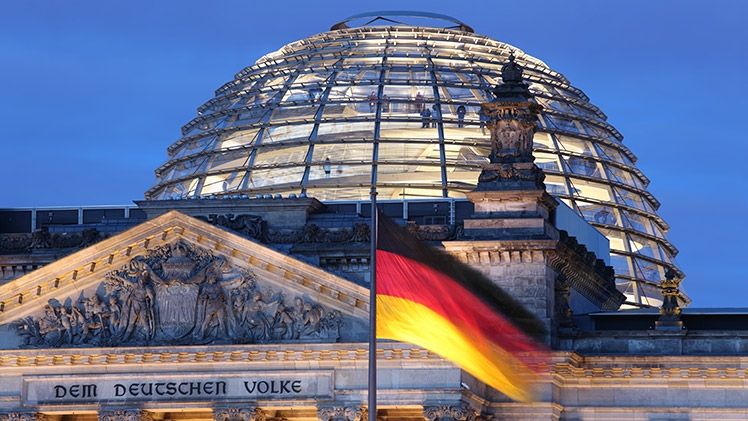Germany –2024-2025 Scenario: the tired or sick man?
- 07.02.2024
- 0
- Télécharger la publication (PDF - 743,33 KB)

- Latest economic developments
- The outline of our scenario
- Focus: Public finances
- Appendix
In summary
After returning to pre-pandemic levels in early 2022, GDP growth slowed to 1.9% in 2022 from 3.1% in 2021. GDP is now only 0.3% higher than before the pandemic. The economy should grow by a modest 0.2% in 2024, below potential GDP growth, and by 1.1% in 2025.
Europe's largest economy continues to lag behind its neighbours as a decade fuelled by low interest rates, cheap energy and strong exports comes to an end. Is Germany once again the sick man of Europe or rather the tired man of Europe, as Finance Minister Christian Lindner recently commented ?
Tighter financial conditions, higher energy prices and a contraction in Chinese demand have been enough to tip the economy into negative territory. However, as Lindner acknowledged, the problems facing the country are structural as well as cyclical. The government plans to devote a substantial part of resources to projects aimed at boosting the economy and decarbonising the country, although it has failed to introduce the measures in favour of facilitating business and providing the skills required by companies. To a large extent, the question is whether industries will continue producing in Germany, namely the pursuit of the “Standort Deutschland”, or move elsewhere.
The economy contracted by -0.1% in the third quarter of 2023, after expanding by 0.1% in the second quarter. Investment rose by 0.6% despite higher interest rates and weak sentiment, while exports and private consumption fell by -0.8% and -0.3%, respectively.
Surveys and high-frequency data show that economic activity weakened in the fourth quarter of 2023, anticipating a fall in GDP by -0.1% in 2023. The economy would continue to be hampered by weak consumption and exports during the first semester of 2024. The recovery expected for the second semester of 2024 would be supported by lower inflation, higher earnings and a considerable increase in purchasing power. Weak foreign demand for German products is expected to be offset by the recovery in domestic demand. However, tighter financing conditions would continue to restrain growth in private consumption and investment.
Inflation has been dampened by lower energy prices, tighter financial conditions, fiscal retrenchment and the continued normalisation of supply disruptions. Despite falling inflation, the cumulative increase in prices remains. Higher earnings are expected to keep service inflation high. Core inflation would continue to slow, although at a slower pace due to rising earnings.
Industrial production has bottomed out, although weak demand would slow the recovery in activity. Particularly, the production of energy-intensive industrial branches has raised by 3.1% after months of decline. However, these branches have yet to recover from the substantial increase in energy prices. The economy is highly exposed to external shocks. While new orders could have troughed, high interest rates and a weak global economy are holding back demand for capital goods, which account for a significant share of exports.
The rise in the reference interest rate has restricted access to credit, although the risk of refinancing for businesses remains limited. Insolvencies have increased significantly, although their level is low in historical terms and relative to the rest of the Eurozone. However, the deterioration in economic activity in recent months is starting to have a negative impact on the labour market. The unemployment rate should rise slightly in the first semester of 2024 and is not expected to return to the 2023 average before 2025.
The debate between financial support for the industry and fiscal orthodoxy will continue. The government has reached an agreement to adopt a contractionary fiscal policy to comply with the national debt brake. As a result, 60 billion euros should be raised to balance the accounts following a court ruling at the end of 2023.

Europe's largest economy continues to lag behind its neighbours as a decade fuelled by low interest rates, cheap energy and strong exports comes to an end. Is Germany once again the sick man of Europe or rather the tired man of Europe, as Finance Minister Christian Lindner recently commented?
Alberto ALEDO, Economiste, Allemagne, Autriche, Pays-Bas
